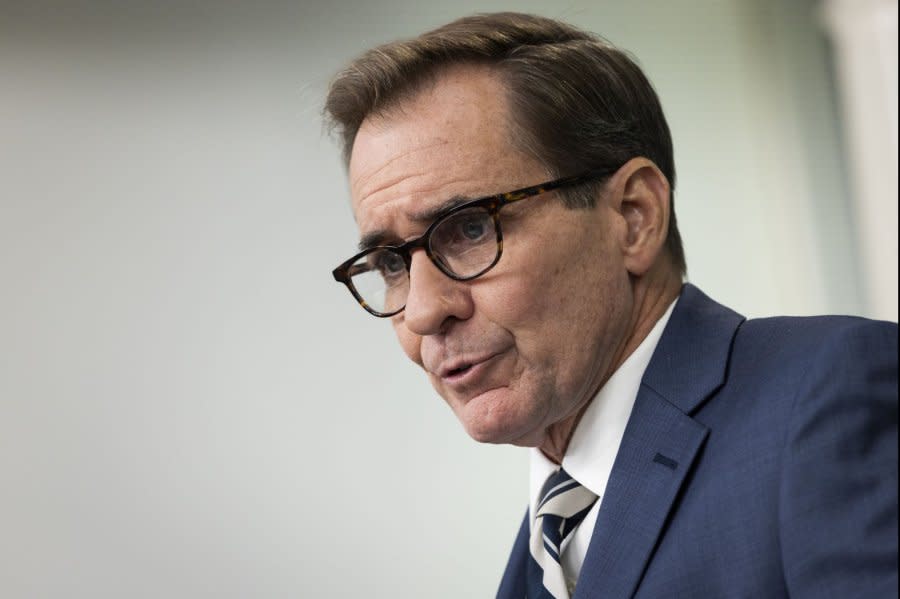U.S. calls for 'peaceful outcome' of Venezuelan presidential election

- Oops!Something went wrong.Please try again later.
July 25 (UPI) -- The United States warned Venezuelan President Nicolás Maduro's government any political repression and violence ahead of Sunday's presidential election is "unacceptable."
White House national security spokesperson John Kirby in a press briefing Thursday said "we're watching closely" in the days before Venezuelans head to the polls Sunday.
"Any political repression and violence is unacceptable," Kirby said. "And of course, regardless of who wins, we encourage both candidates to commit to a peaceful outcome and to work together for the good of all Venezuelans."
Despite predictions that opposition candidate Edmundo Gonzáles Urrutia could easily end Maduro's 25-year reign, Venezuelan opposition leaders are expecting attempts to subvert the results of Sunday's election at the last minute.
The electoral authority CNE is led by loyalists of the ruling United Socialist Party of Venezuela, and opposition leaders told Axios they fear the CNE could try to turn the results in favor of Maduro.
Opposition members said the CNE is claiming technical difficulties with printing out confirmation that over 90,000 opposition witnesses need to be present at poll sites.
Venezuelan political analyst Félix Seijas Rodríguez said Venezuela's current political landscape has turned on Chavismo, the political movement created by Maduro's predecessor, the late Hugo Chávez Frías.
Coincidentally, Sunday's election falls on Chávez's birthday.
Chavismo, which has enjoyed over two decades of prominence, has dipped in popularity as many proponents have been disillusioned by the Maduro government marked by increased isolationism leading to harsh economic sanctions.
Given the opposition party's momentum since October, the Maduro government also might not be able to win with its usual strategy of whittling down support from the party, Rodríguez said, although that hasn't stopped it from trying to reduce turnout by making it harder for Venezuelans to register vote and by abruptly changing polling places.
Despite, or perhaps because of Maduro's efforts, voters have rallied behind Gonzáles, a soft-spoken former diplomat who until April was a political newcomer.
Gonzáles was tapped as the opposition party's pick after charismatic previous frontrunner María Corina Machado was disqualified from running.
Machado's removal from the ticket followed a disturbing pattern the Maduro regime has taken in dealing with political opponents. Her first substitute Corina Yoris also was barred from running against Maduro.
Maduro's supporters, meanwhile, have dwindled both physically and in spirit. An estimated 7.7 million people have fled Venezuela after the economy shrank by almost 80% between 2014 and 2021.
Venezuela's national currency the bolivar has plummeted due to hyperinflation, leading some people to shift to using the U.S. dollar for transactions.
Maduro has long attributed Venezuela's economic instability on United States interference.
The United States since 2005 has imposed strict sanctions on Venezuelan "individuals and entities" for "criminal, antidemocratic or corrupt actions."
The Biden administration most recently reimposed previously lifted sanctions on Venezuela's oil and gas sector in response to Maduro's continuing arrest of political adversaries.
For this election cycle, Maduro has pivoted to a different campaign strategy. He joined TikTok in 2020 and has since amassed more than 2.2 million followers. He also hosts Instagram Live broadcasts where he posts videos of his rallies full of enthusiastic supporters.

